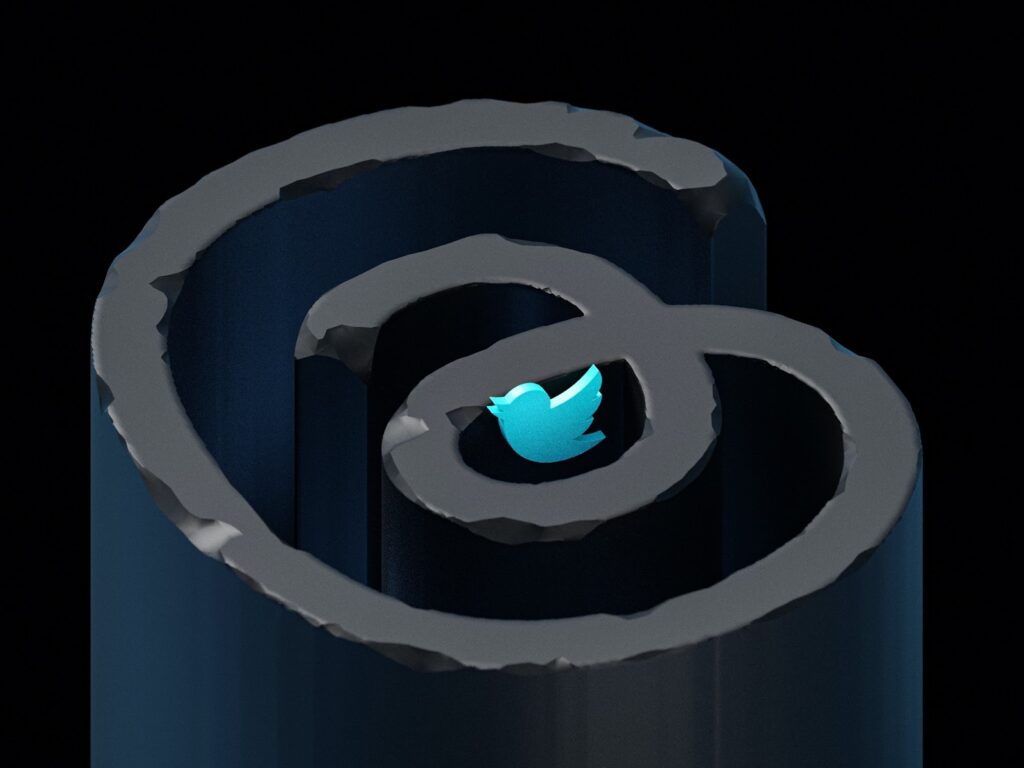In brief
- Founder and former CEO of Twitter advocates for censorship-resistant technology to support social media.
- Decentralised systems make it difficult for any single authority to control or remove specific content.
- Making changes to existing “centralised” platforms is probably faster than trying to build audiences for new, decentralised ones.
Twitter founder calls for censorship-resistant protocols
Founder and former Twitter CEO, Jack Dorsey has a complex history when it comes to censorship. Dorsey claimed governments threatened to shut down Twitter during his tenure if the platform didn’t censor content. But Dorsey has been accused of silencing conservatives and admitted moderation policies can feel like a “black box” to people outside the company.
Now Dorsey is urging Twitter’s current leadership to integrate censorship-resistant protocols like Bitcoin and NOSTR (explained below).
Dorsey tweeted that open protocols are important for preserving an open internet and has taken a swipe at Meta’s new Twitter-like service, Threads, over privacy concerns. “All your Threads belong to us,” tweeted Dorsey alluding to the large amounts of user data Meta was gathering through the site.
What are open protocols?

Open protocols are digital tools, which are openly accessible and usable by anyone without requiring a licence. Wifi is an example of an open protocol. Transparency makes them open and their design can make them resistant to censorship. Social media platforms like Twitter and Meta face potential pressure from Governments and use secret algorithms to censor users.
Critics are concerned about open protocols in regards to the spread of misinformation. Others support evolving social media into a more censorship-resistant space.
What is NOSTR?
NOSTR stands for “Notes and Other Stuff Transmitted by Relay”. The system aims to create a global data-sharing network resistant to all censorship or outside control.
NOSTR allows you to encrypt messages and send them to your friends. Your message goes through different “relays”, which pass your message along. If someone tries to stop your message from reaching your friends, you can make more relays and create your own network to keep sharing your messages. Your messages can always find a way to reach your friends.
What is #nostr?
— Edward Snowden (@Snowden) February 1, 2023
Unlike the old social media "platforms" where the platform-owner (FB, Tiktok, Twitter) gets to decide who can speak—and what can be heard—#nostr is an open protocol.
If a platform is a silo, a protocol is a river: no one owns it, and everyone is free to swim. https://t.co/NOW06ouJIw
Platforms like Mastodon, Parler and Minds are also creating ecosystems with relays for social media and seeing some growth.
What about YouTube?
Censors are targeting video platforms as well. Decentralised video protocols, such as LBRY, WebTorrent or PeerTube are powerful and resistant to censorship because they operate peer-to-peer networks, allowing computers to communicate directly, offering content freedom much like NOSTR.
Video content hosted independently across the world makes it extremely difficult and costly for any single authority to control or remove specific videos.
LBRY functions like a game where you get rewarded for hosting videos, but the exact content remains hidden from the players. It’s designed so that no single person can easily take down the content. Websites or software can then integrate with LBRY. For example, odysee.com lets you watch videos that are stored on the LBRY network. It’s all about protecting the videos and keeping everything open and decentralised.
Might be faster to tweak existing “centralised” platforms than create brand new ones
While decentralised platforms are slowly growing, the majority of people still appear inclined to stick with popular, centralised platforms.
Modifying the infrastructure of an existing platform like Twitter, as Dorsey suggests, might be the best way to get people on board with this emerging censor resistant technology.





















